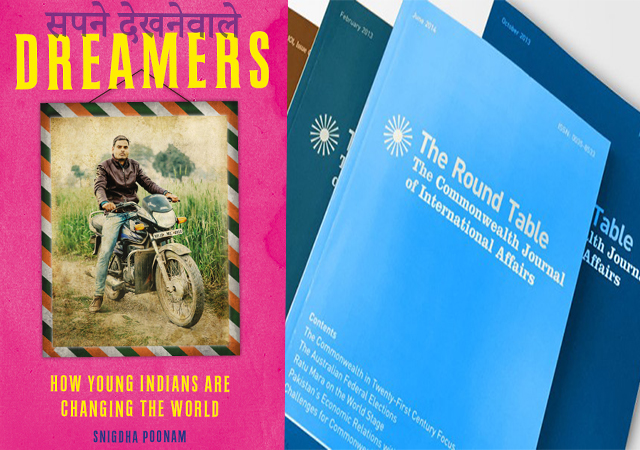 Round Table's Rita Payne reviews Snigdha Poonam's book. [photo: Hurst Publishing]
Round Table's Rita Payne reviews Snigdha Poonam's book. [photo: Hurst Publishing]
Dreamers is an eye-opener, especially for someone like me who left India in the early 1970s. The prevailing ethos when I was growing up was the Gandhi–Nehru vision of socialism, tolerance and pluralism. When I was at school we did not question to which caste or religion our classmates belonged. In Dreamers we meet a generation for whom secularism is dead. In Narendra Modi, the majority Hindus have found someone with whom they can relate.
The author, Snigdha Poonam, has travelled to small towns and big cities in India to talk to young people about their aspirations, fears and anxieties. She has met people who aspire to become models and motivational speakers, elected politicians and film stars. She has spoken to fixers, scammers and cow protection thugs. These young people are unapologetic about the paths they have chosen to pursue their big dreams. They are united by the belief that they can achieve anything through hard work, sheer determination, bloody-mindedness and pride in being Indian.
Poonam takes us into different worlds. We visit WittyFeed, one of world’s fastest growing content arms. Based in an office in a shopping mall in Indore, a medium-sized city in central India, a young, dynamic team runs a website, WittyFeed, which has over a billion followers on Facebook alone. Buzzfeed is the only website of its kind to have more visitors than WittyFeed in generating viral content. Eighty per cent of visitors to WittyFeed are foreigners and half are from the United States. The website is giving itself two years to beat Buzzfeed.
Poonam says she decided to travel to Indore to find out ‘how a bunch of kids in a small Indian town who have never seen the world dream of ruling it by simply getting the Internet better than anyone else’. She found a 20-something workforce who live together like a family and are almost like a cult. They are taught to learn how Americans think and what will make them click. They churn out content intended to go viral with headlines such as ‘A husband divorced his wife after looking closer at this picture’.
The chief executive officer, Singhal, represents a successful dreamer. A man who grew up in a small village in Haryana with an ambition to become the richest person in the world, he found the route to success after discovering the Internet. He set up WittyFeed with his brother and gradually drew in his father and later his wife. The company is currently valued at only 30 million dollars but the brothers want to build the world’s largest media company – even bigger than the BBC or CNN.
Singhal shares Trump’s view of the world and is convinced that running a successful company makes him a suitable candidate to run a country. Poonam notes the many parallels between Singhal and Trump. It is no surprise to learn that, like millions of young men in India, Singhal regards tech-savvy Modi as the ideal leader, not Rahul Gandhi, who is dismissed for not personally running his Twitter account. Singhal’s ambition knows no bounds and he informs Poonam, without irony, that he wants to lead humanity: ‘I want to go outside the earth. I want humanity to be a multi-planetary existence. I want to lead Mars’.
Most of the young people Poonam interviewed recognised that it would be close to impossible to realise their dreams without a command of spoken English. This is seen as the route to achieving their dreams. This realisation has led to the mushrooming of English language schools and coaching centres all over the country. Poonam writes entertainingly about enterprising individuals who have become rich building on this hunger to learn and speak English. These people are not drawn by the beauty of the language or desire to study Shakespeare and other literary giants. For them English is a tool for life improvement. It was, after all, spoken English that paved the way for the phenomenal growth of call centres.
According to Poonam, the version of English people learn at these language centres and which they use to speak with colleagues, waiters, and customer care executives will define the future of not just India but the future of English worldwide. With India expected to have the largest number of English speakers in the world in the next 10 years – overtaking the US – the English they speak will be the English of the future.
[This is an excerpt from a book review which appeared in The Round Table: The Commonwealth Journal of International Affairs.]
Rita Payne is a Journalist and Media Advisor, President Emeritus Commonwealth Journalists Association and a member of the Round Table Editorial Board.



